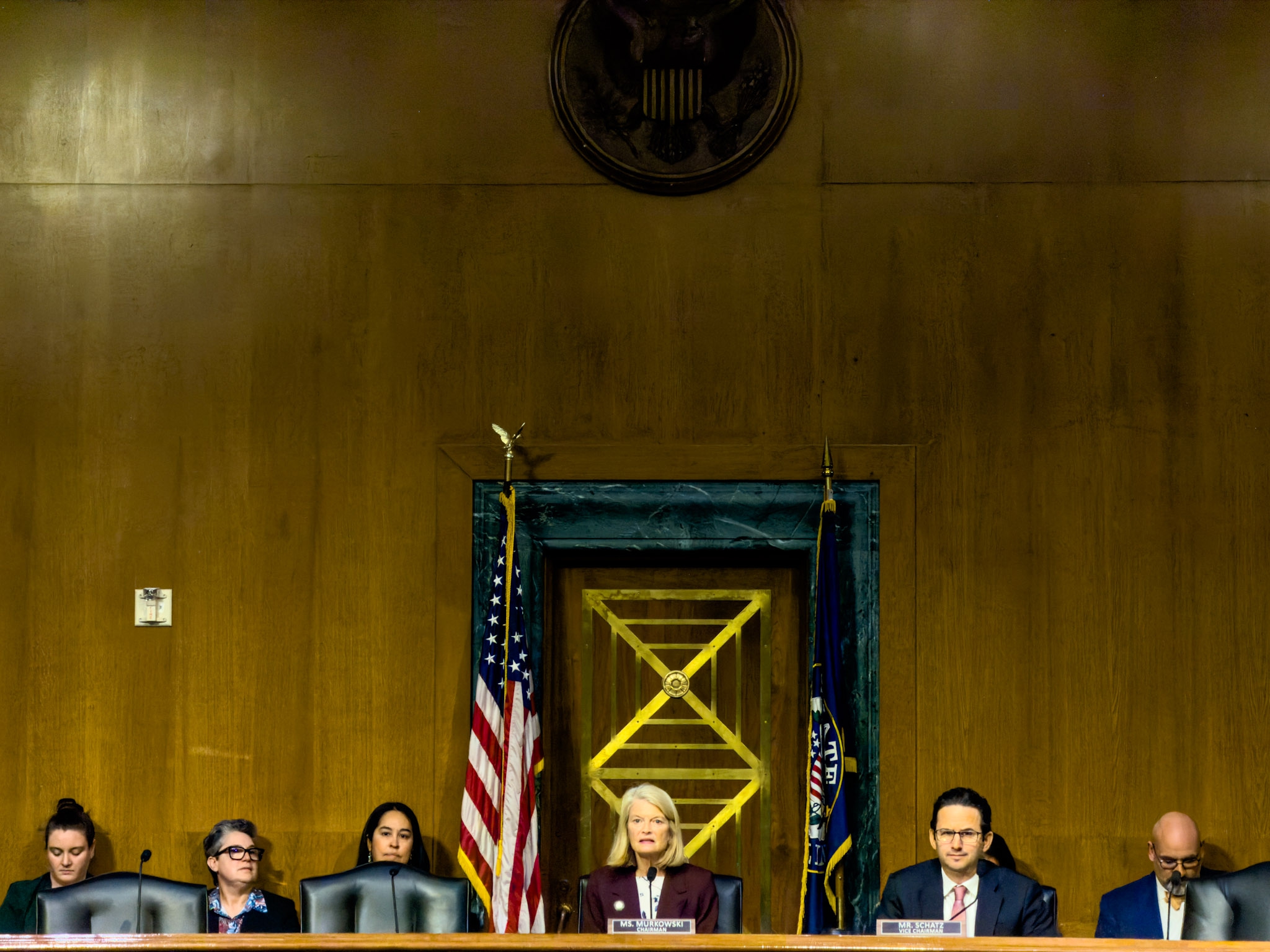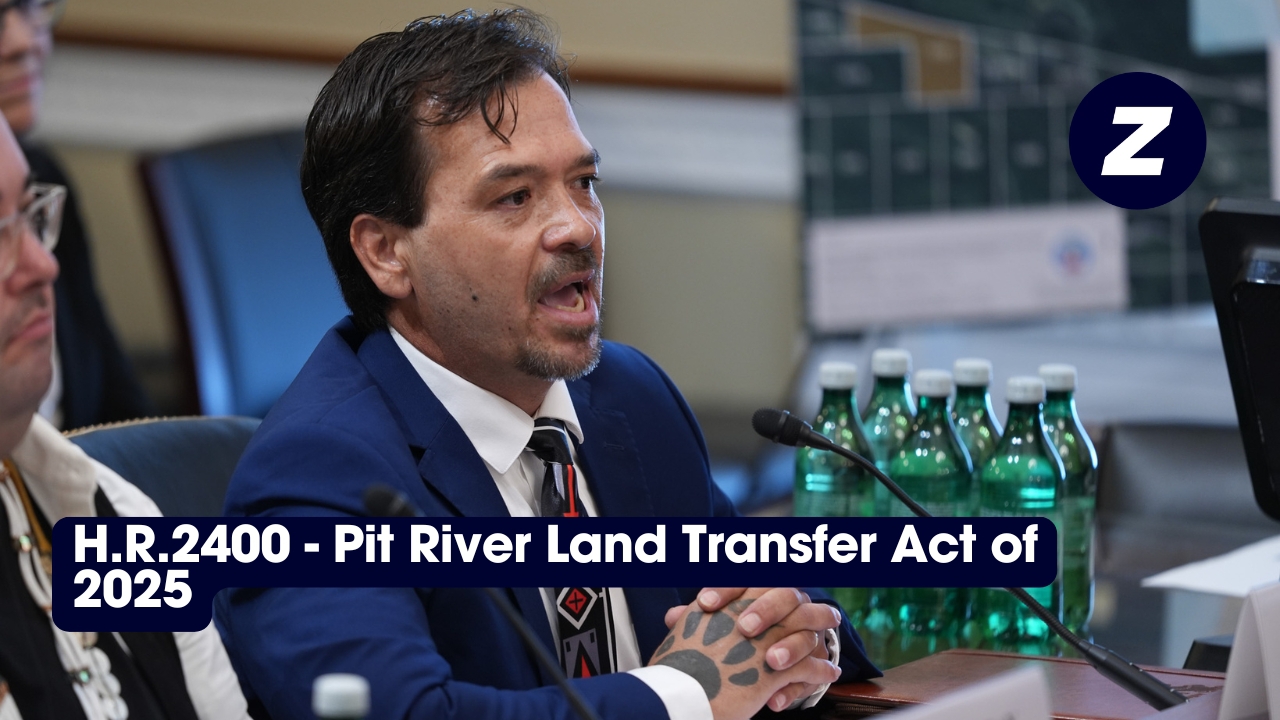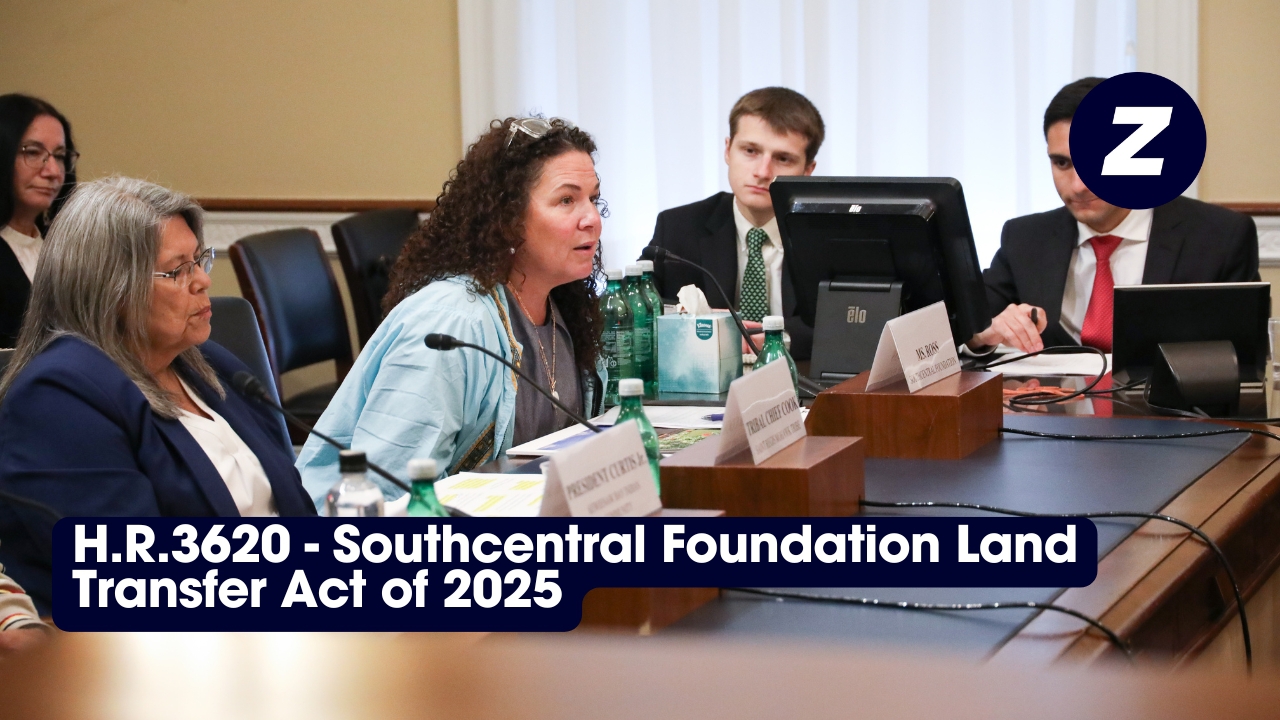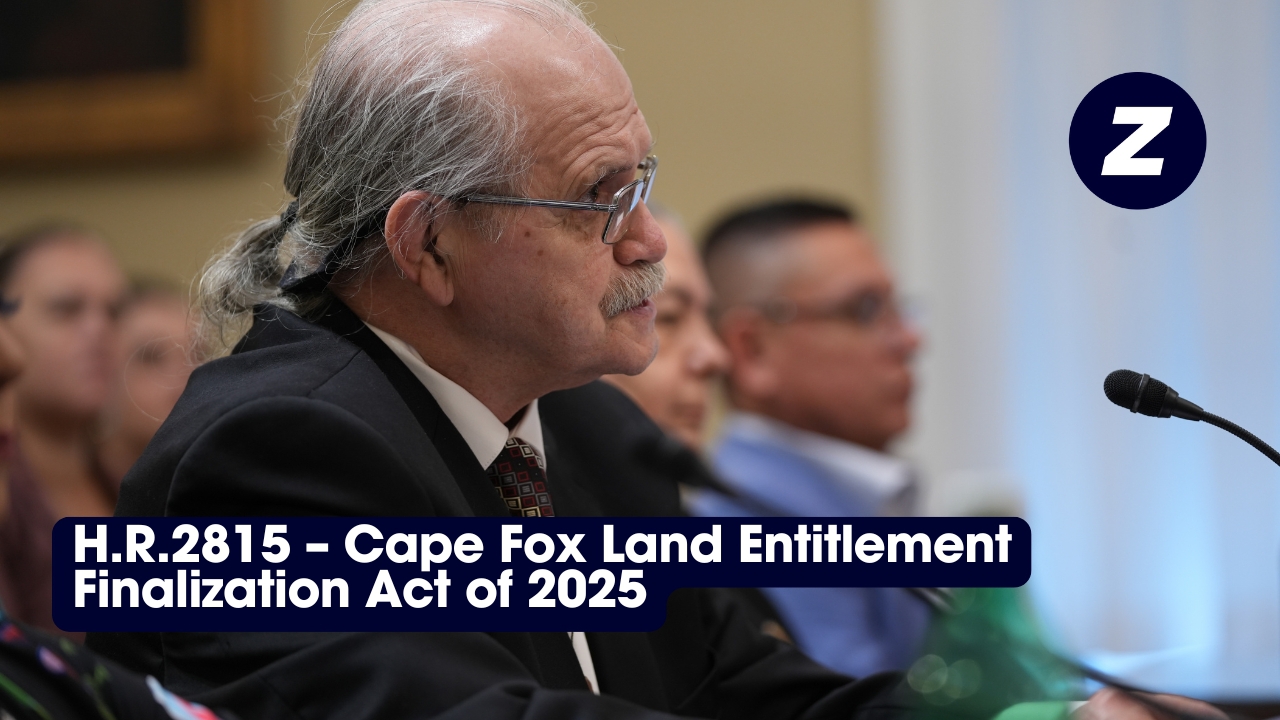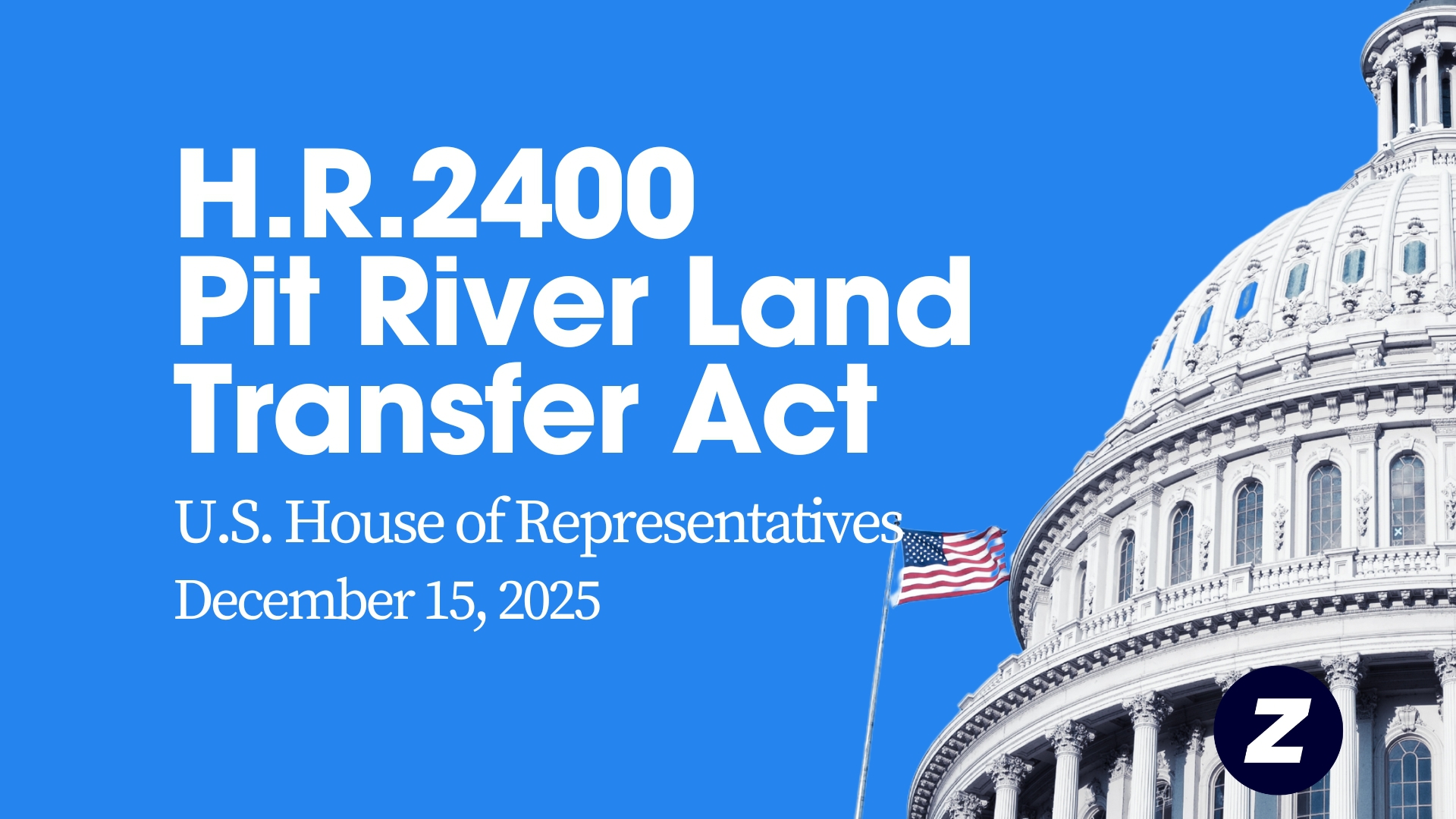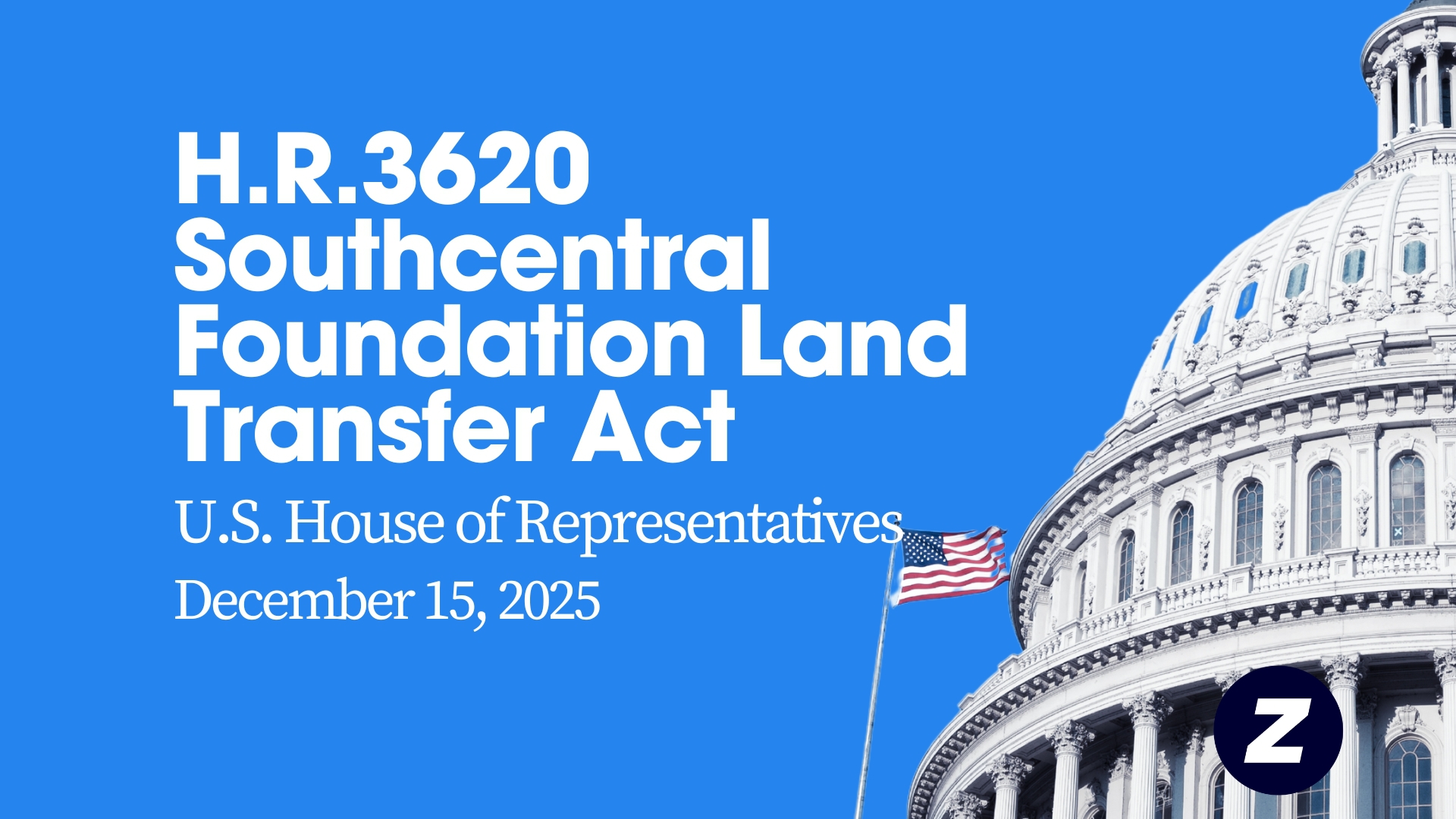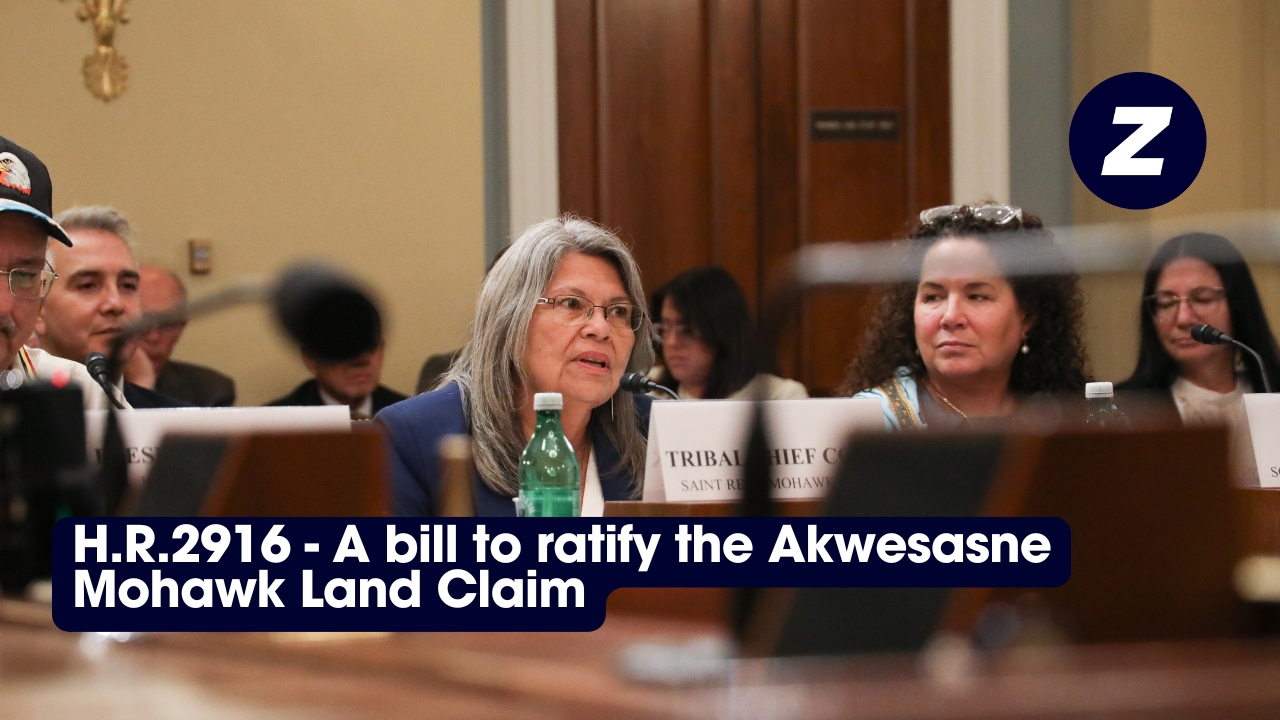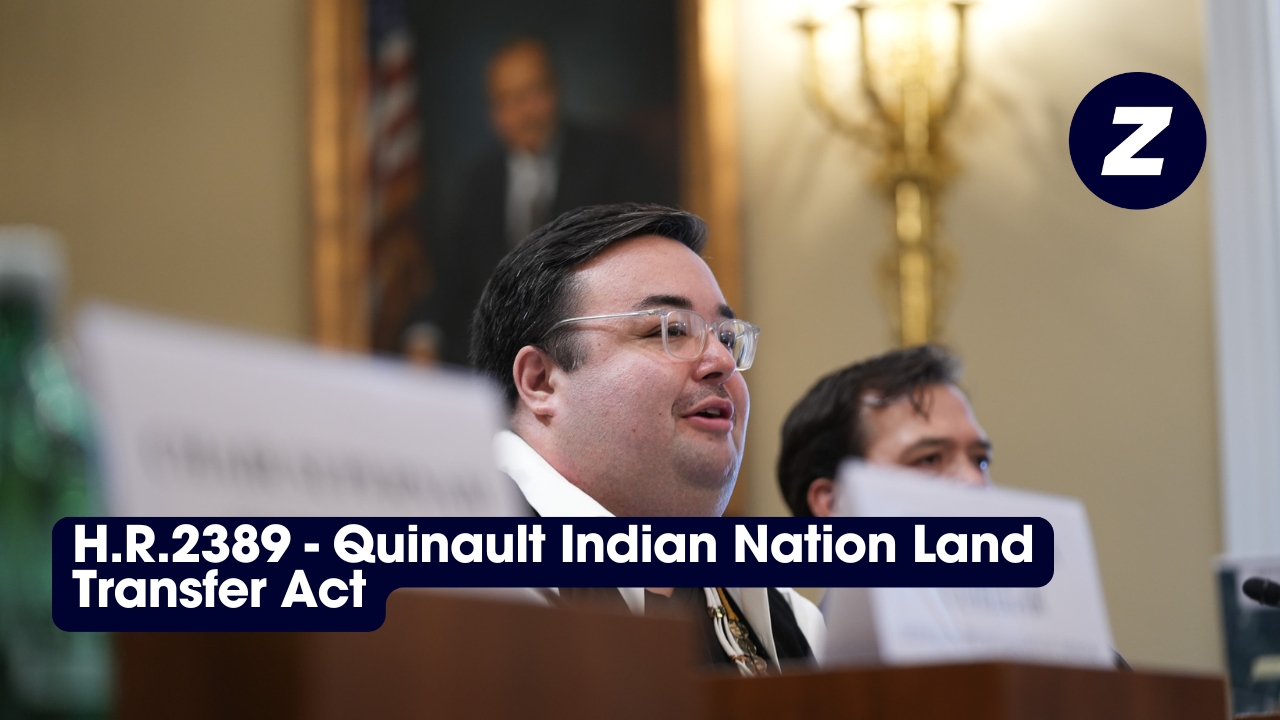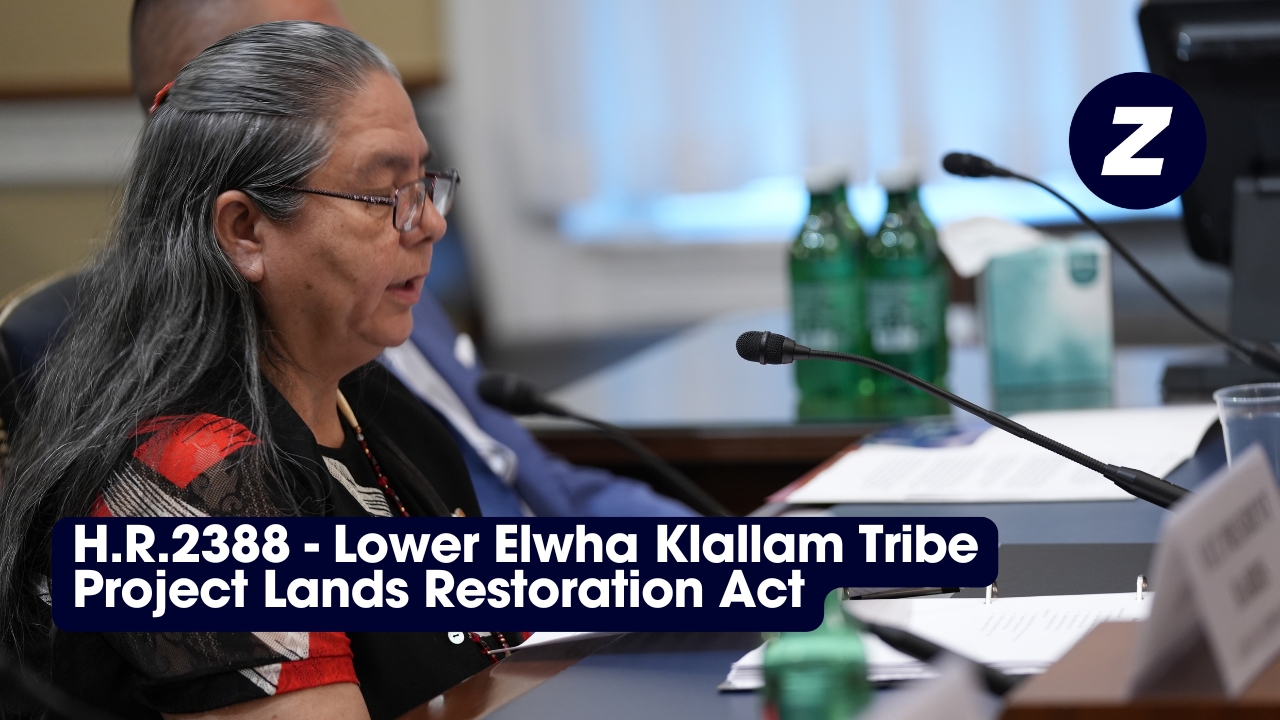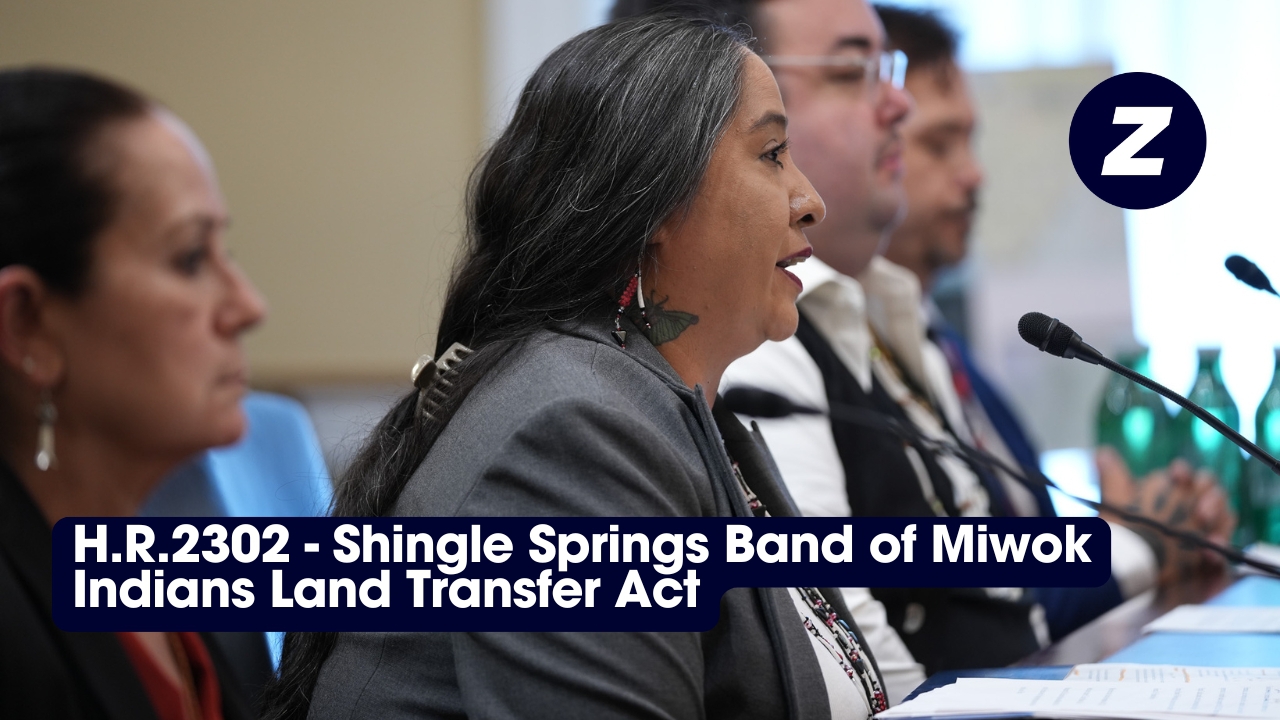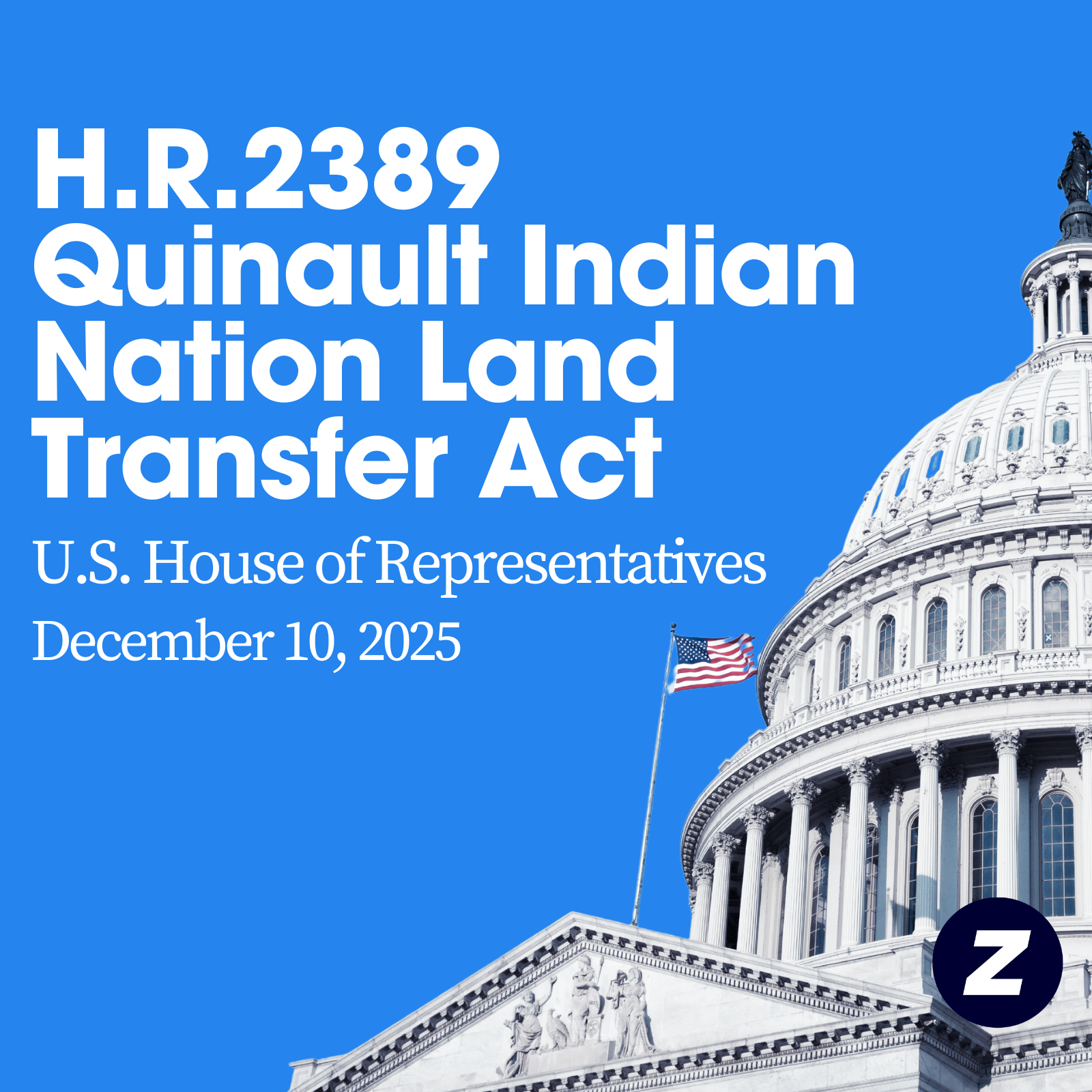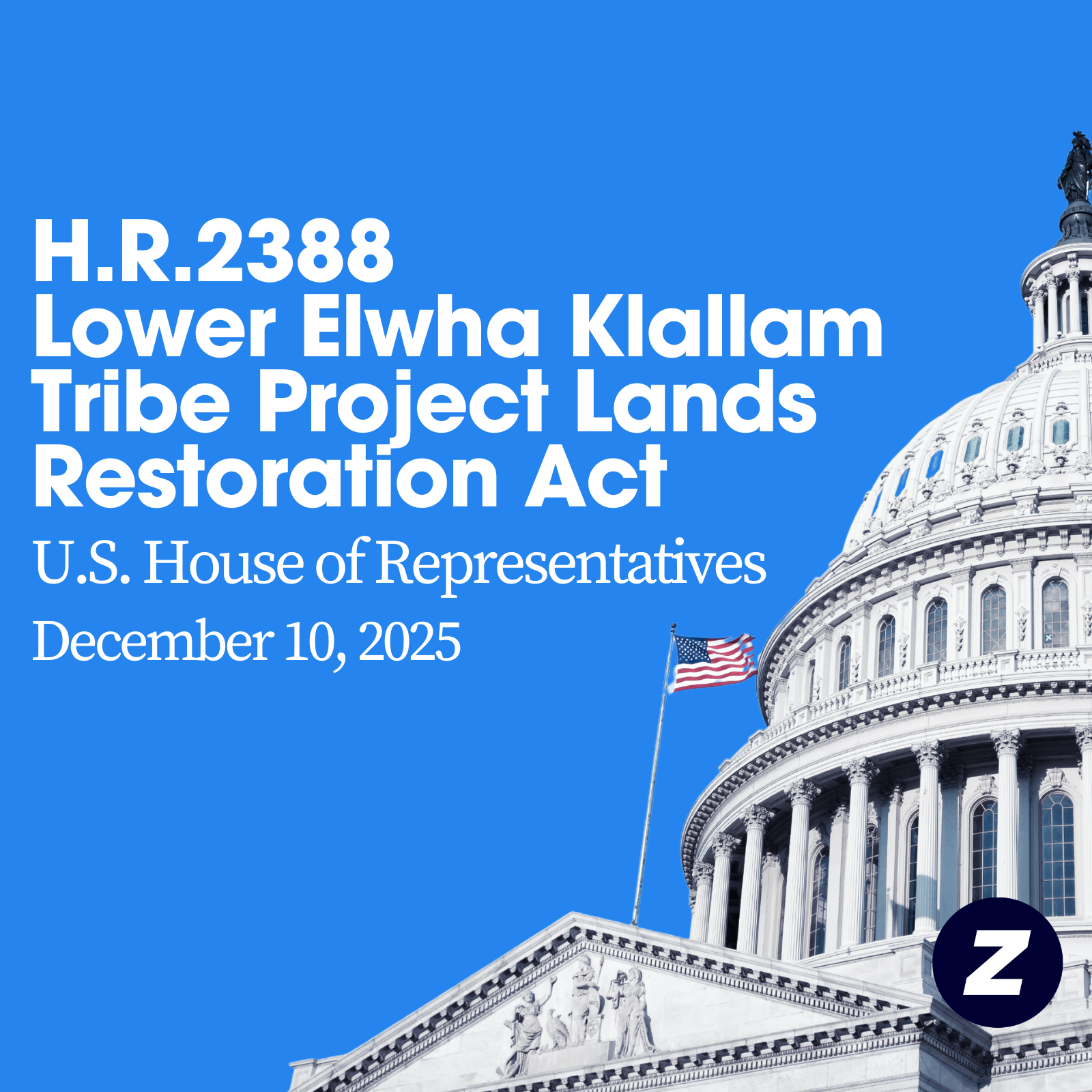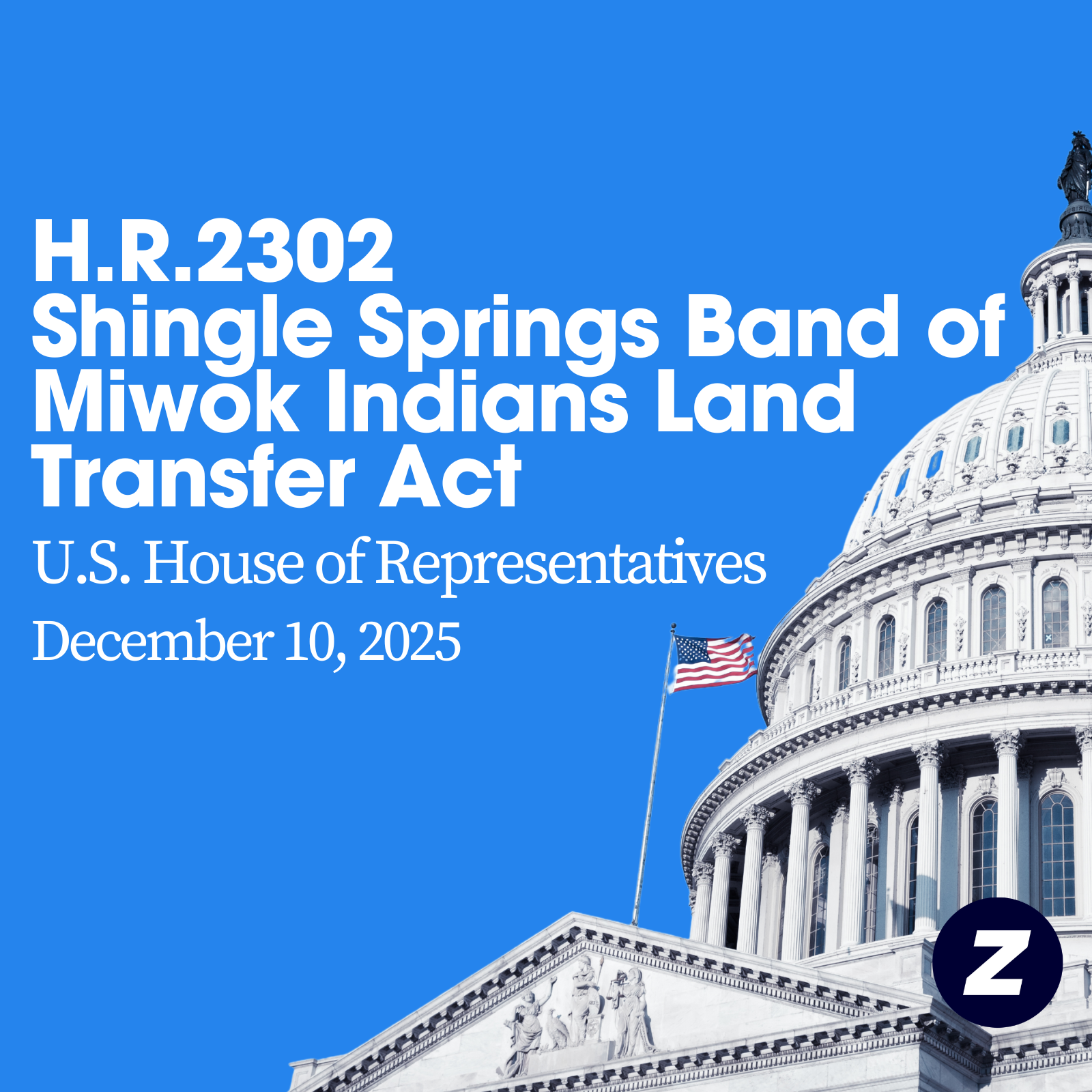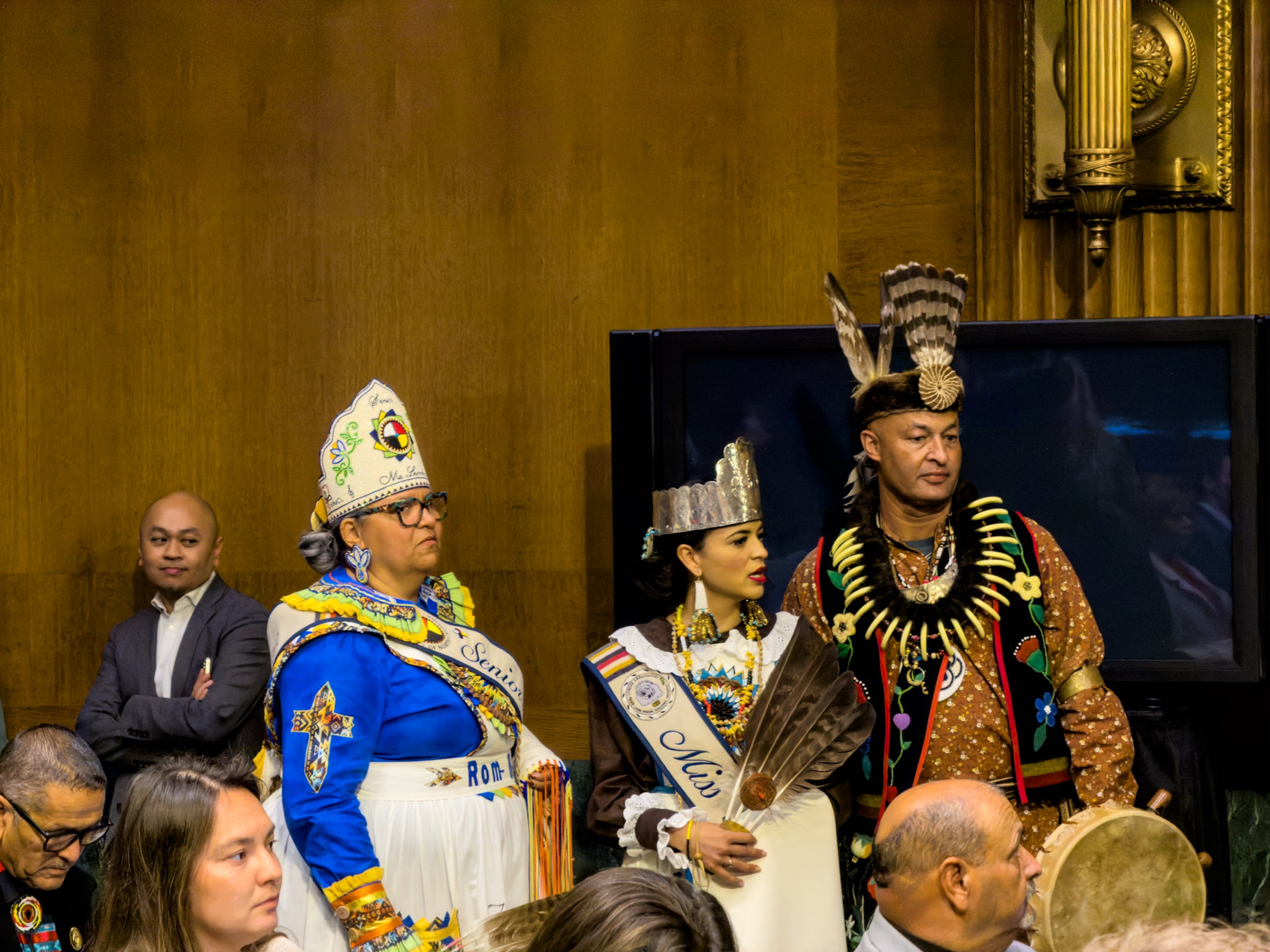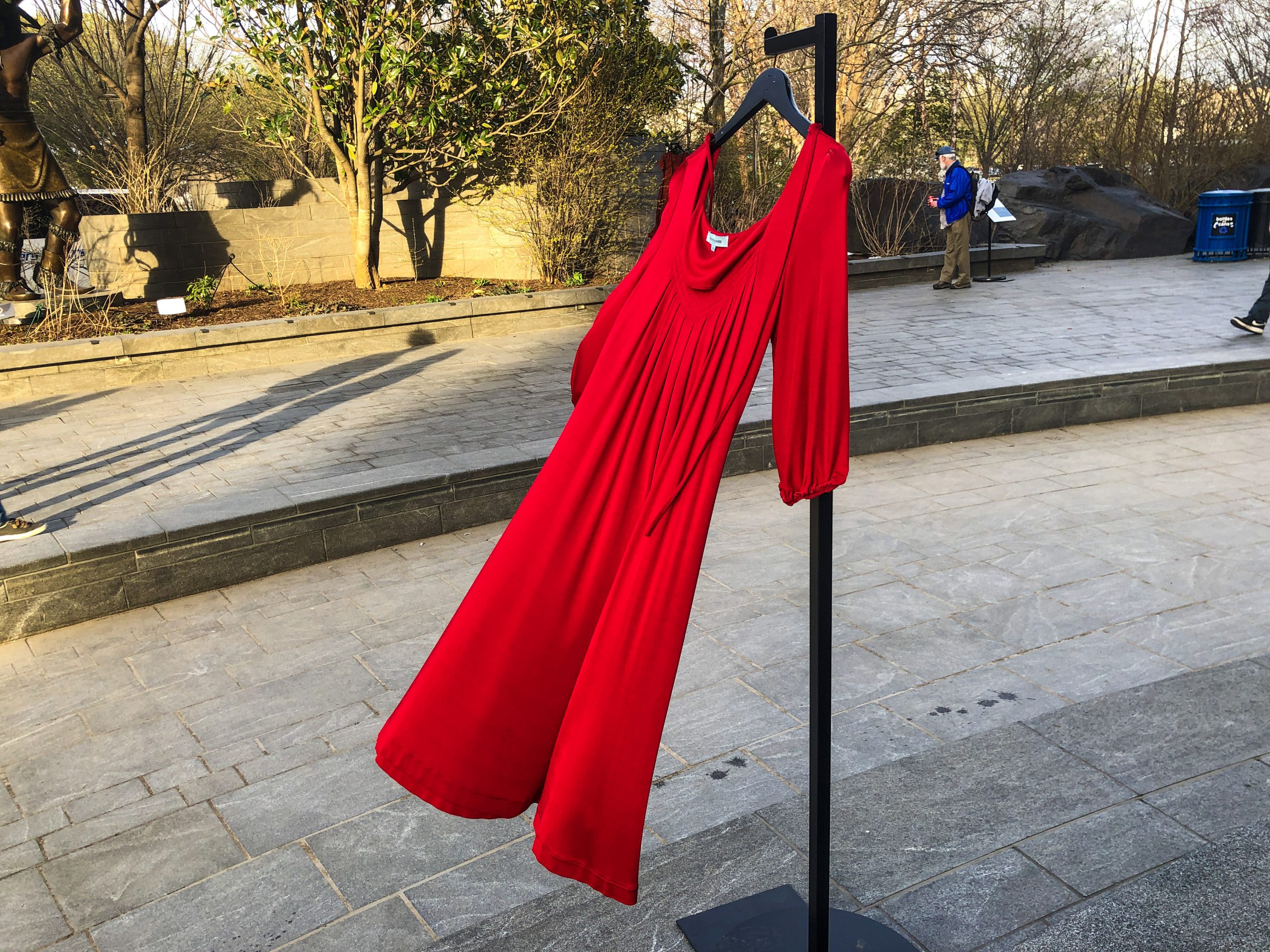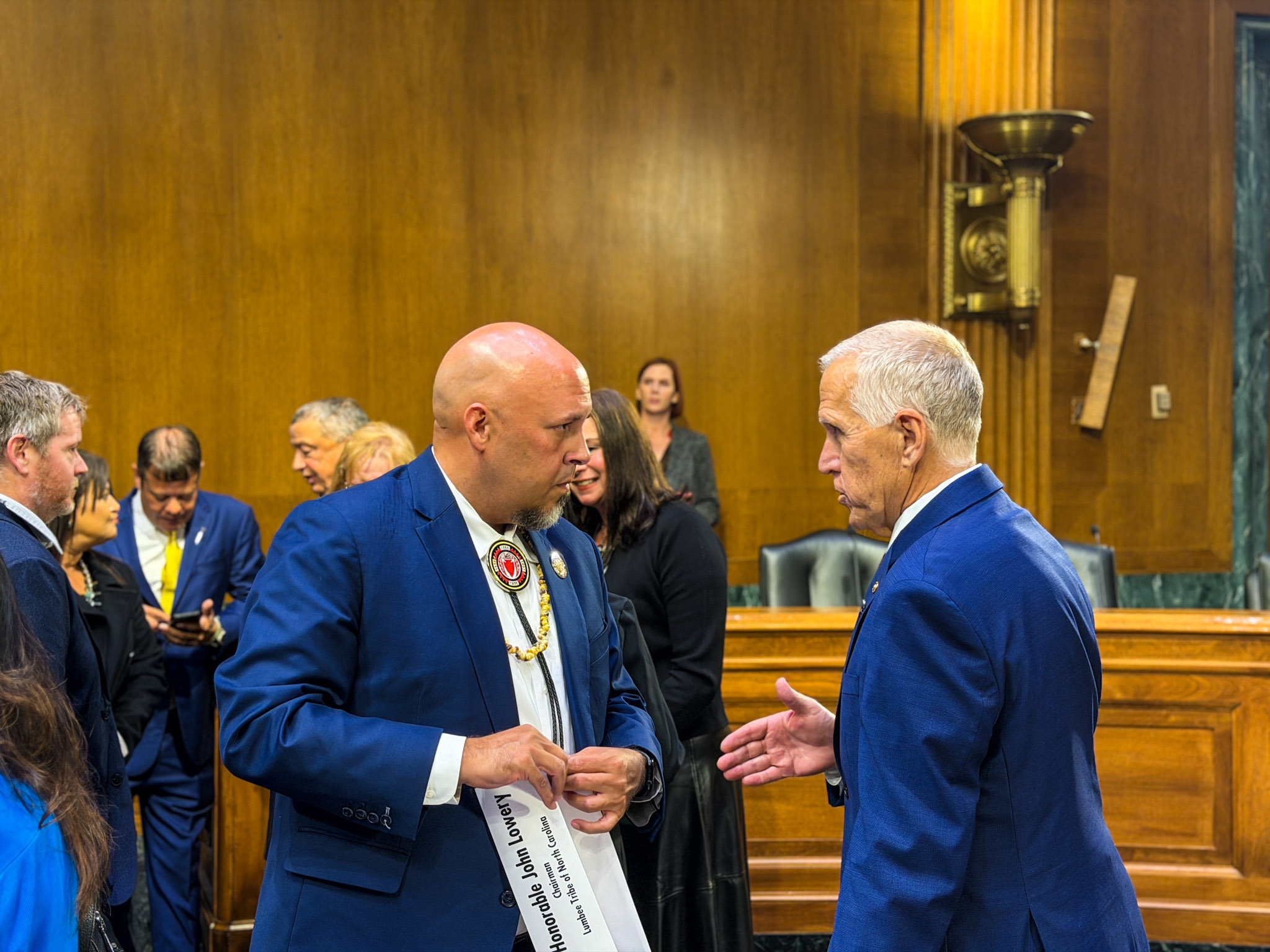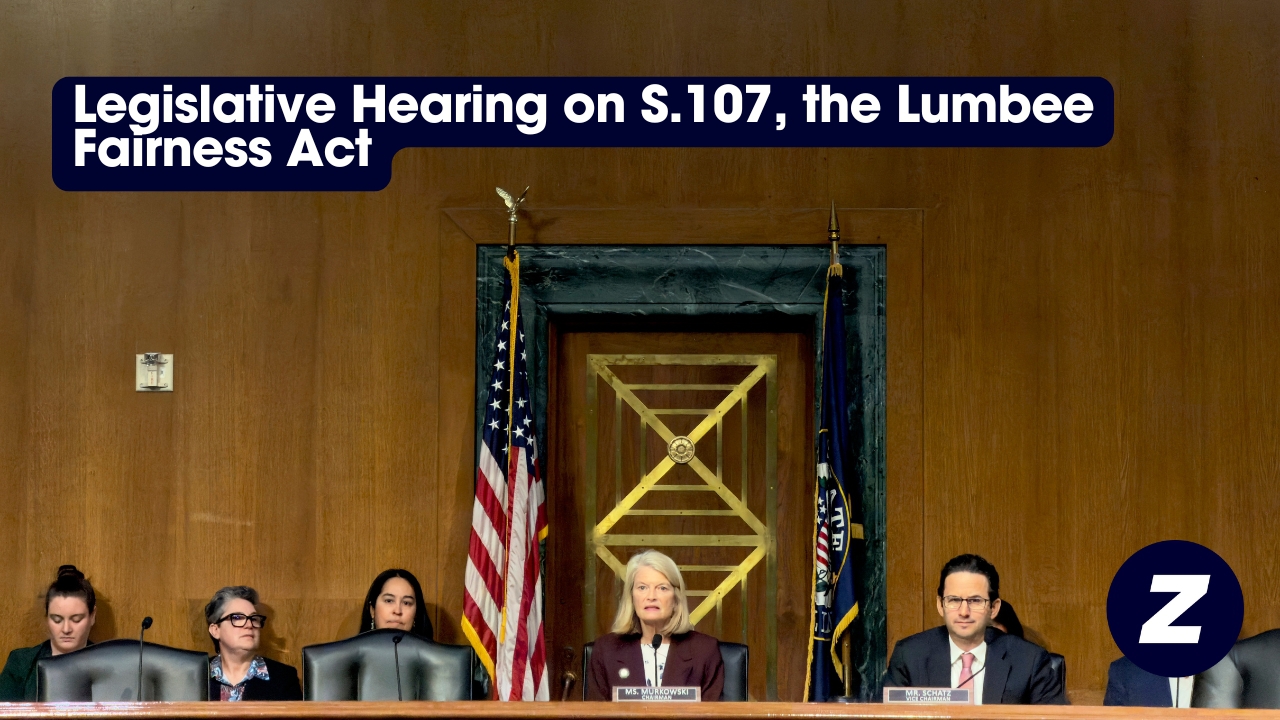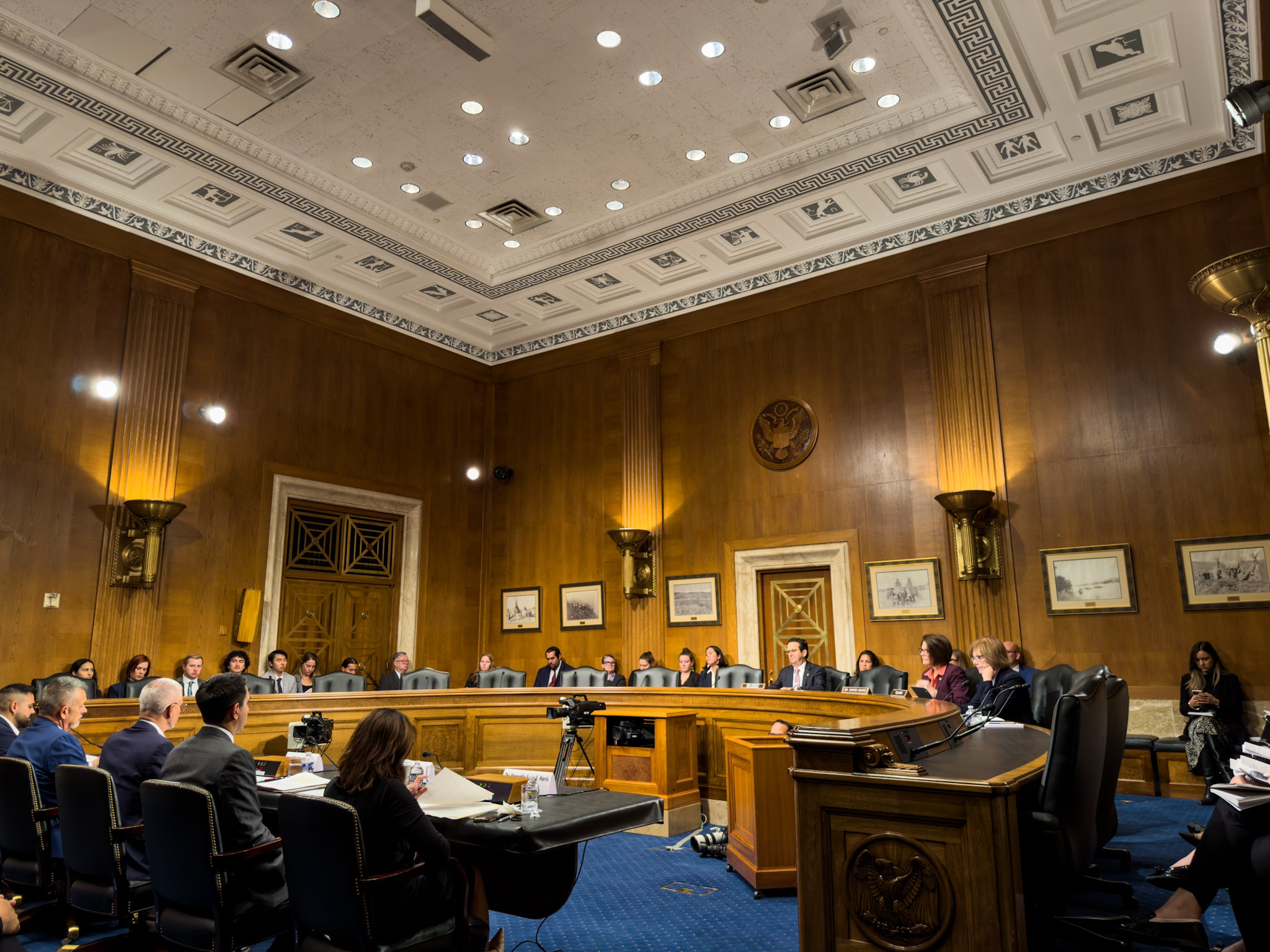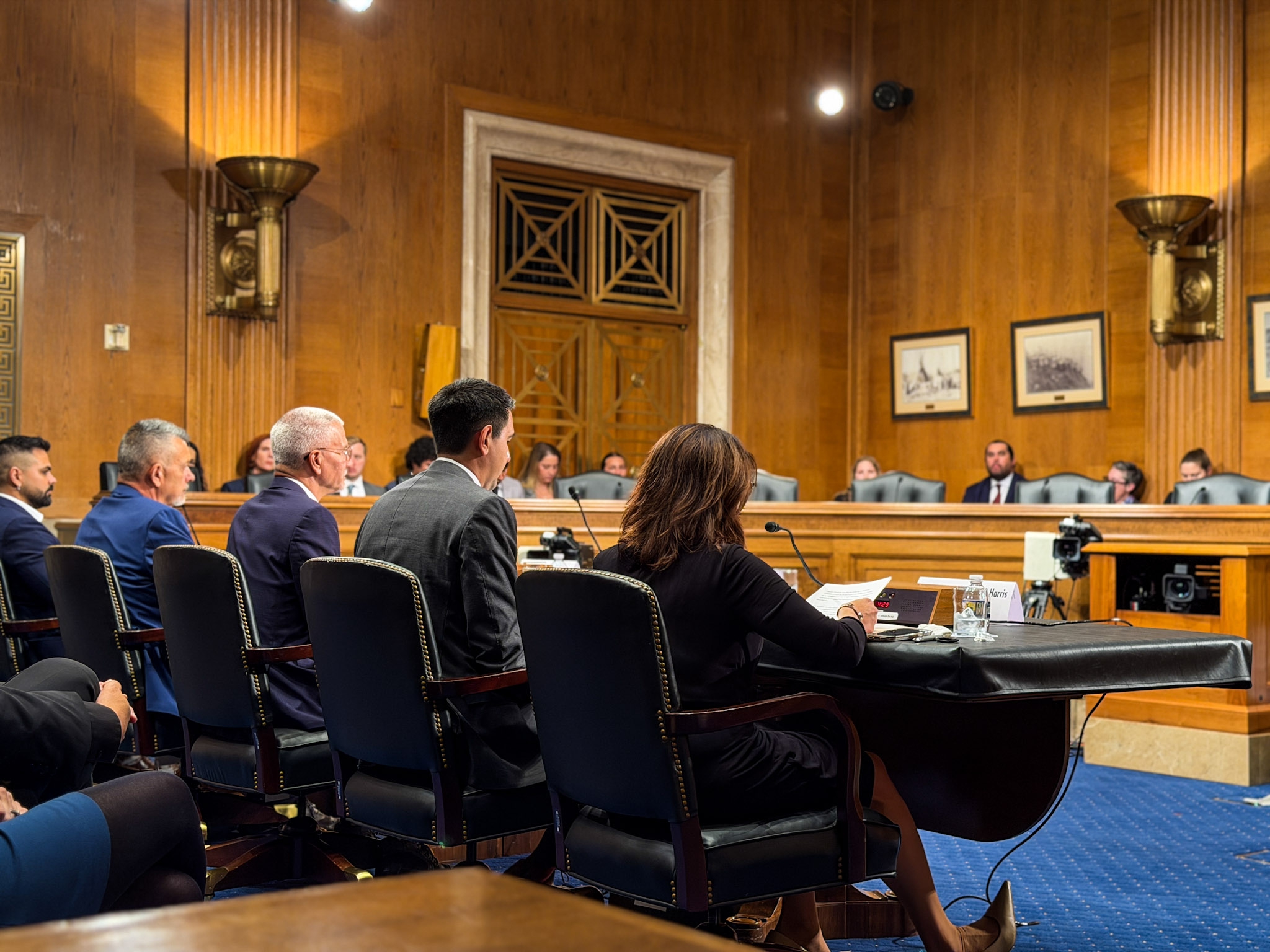The first year of the Donald Trump era ended with yet another strike on Indian Country, this one coming straight from the White House.
“The Miccosukee Tribe of Indians of Florida has long supported President Trump’s commitment to Everglades restoration, for the benefit of America’s public lands,” said Chairman Talbert Cypress.
With the stroke of a pen, the U.S. welcomes the 575th federally recognized tribal nation.
The Senate Committee on Indian Affairs is holding a business meeting and legislative hearing as the first half of the 119th Congress comes to a close.
The U.S. House of Representatives considers H.R.2400, the Pit River Land Transfer Act of 2025, on December 15, 2025.
The U.S. House of Representatives considers H.R.3620, the Southcentral Foundation Land Transfer Act of 2025, on December 15, 2025.
The U.S. House of Representatives considers H.R.2815, the Cape Fox Land Entitlement Finalization Act of 2025, on December 15, 2025.
The U.S. House of Representatives considers H.R.2400, the Pit River Land Transfer Act of 2025, on December 15, 2025.
The U.S. House of Representatives considers H.R.3620, the Southcentral Foundation Land Transfer Act of 2025, on December 15, 2025.
The U.S. House of Representatives considers H.R.2815, the Cape Fox Land Entitlement Finalization Act of 2025, on December 15, 2025.
The U.S. House of Representatives considers H.R.2916, a bill to settle a land claim of the St. Regis Mohawk Tribe, on December 9, 2025.
The U.S. House of Representatives considers H.R.2389, the Quinault Indian Nation Land Transfer Act, on December 9, 2025.
The U.S. House of Representatives considers H.R.2388, the Lower Elwha Klallam Tribe Project Lands Restoration Act, on December 9, 2025.
The U.S. House of Representatives considers H.R.2302, the Shingle Springs Band of Miwok Indians Land Transfer Act, on December 9, 2025.
The U.S. House of Representatives considers H.R.2916, a bill to settle a land claim of the St. Regis Mohawk Tribe, on December 9, 2025.
The U.S. House of Representatives considers H.R.2389, the Quinault Indian Nation Land Transfer Act, on December 9, 2025.
The U.S. House of Representatives considers H.R.2388, the Lower Elwha Klallam Tribe Project Lands Restoration Act, on December 9, 2025.
The U.S. House of Representatives considers H.R.2302, the Shingle Springs Band of Miwok Indians Land Transfer Act, on December 9, 2025.
Tribes are looking down the road and mapping a future away from the blood quantum requirements.
Indian Country is on the losing end of the stick with the release of a must-pass defense bill that was negotiated behind closed doors.
Cuts in funding, federal staff reductions, and department disorganization — along with the U.S. government shutdown -– all took a toll on the work done by tribal museums this year.
The House Subcommittee on Water, Wildlife and Fisheries holds a hearing on Sea Lion Predation in the Pacific Northwest.
The unpredictable nature of federal funding and other factors — including the Donald Trump administration — has tribal colleges scrambling.
Despite promises to address the disproportionate number of Native people who are murdered or go missing, advocates are facing new setbacks.
The nation’s oldest and largest inter-tribal organization opened its annual convention with a competing set of messages about the challenges facing Indian Country.
Access to land for hunting, fishing and gathering are foundational provisions in many treaties between tribes and the U.S. government.
They say timing is everything, with a state-recognized group seeking action amid a lengthy shutdown of the federal government and a major breakdown in the halls of Congress.
The Senate Committee on Indian Affairs holds a legislative hearing on S.107, the Lumbee Fairness Act, on November 5, 2025.
The Senate Committee on Indian Affairs holds a legislative hearing on S.107, the Lumbee Fairness Act, on November 5, 2025.
Read the written testimony of the Department of the Interior before the Senate Committee on Indian Affairs.
Read the written testimony of Arlinda Locklear on behalf of the Lumbee Tribe before the Senate Committee on Indian Affairs.
Read the written testimony of Principal Chief Michell Hicks of the Eastern Band of Cherokee Indians before the Senate Committee on Indian Affairs.
Read the written testimony of Chief Ben Barns on behalf of the Shawnee Tribe and the United Indian Nations of Oklahoma before the Senate Committee on Indian Affairs.
Read the written testimony of Chairman John Lowery on behalf of the Lumbee Tribe before the Senate Committee on Indian Affairs.
The Senate Committee on Indian Affairs is holding a legislative hearing to consider federal recognition for the Lumbee Tribe.
As the federal government shutdown drags on, tribes are feeling the brunt more than the general population.
The Senate Committee on Indian Affairs holds an oversight hearing on October 29, 2025.
The Senate Committee on Indian Affairs holds an oversight hearing on October 29, 2025.
With the shutdown of the U.S. government entering another month, the Senate Committee on Indian Affairs is looking at the impacts on Native communities.
A warrior. A friend. A mentor. A family man. Indian Country is remembering the late Ernie Stevens, Jr., who passed on at the age of 66.
Advertisement



